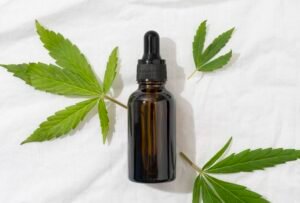Debates surrounding whether alcohol is better than weed, or vice versa, have persisted for decades. It’s a complex issue with several factors to consider. While weed generally carries fewer risks than alcohol, it’s essential to recognize that these are distinct substances, each producing different effects. This differentiation complicates direct side by side comparisons.
A recent study delved into comparing the subjective and behavioral effects of alcohol and cannabis.The research utilized advanced technology to control puffing and inhalation parameters, shedding light on the differences between the two substances. Both alcohol and cannabis exhibited dose related changes in subjective measures of drug effects. Notably, when administered at high doses, the perceived impairment was identical for both alcohol and cannabis. Furthermore, these substances led to similar impairments in digit symbol substitution and word recall tests. However, they had no impact on time perception and reaction time tests.
One notable distinction emerged in the data: alcohol, but not marijuana, slightly impaired performance in a number recognition test. This study’s findings offer valuable insights into understanding the relative performance impairment caused by alcohol and cannabis at the delivered doses and the intricate relationship between their subjective and behavioral effects.
Also Read: Vaping Marijuana
Benefits of Alcohol and Cannabis on Health
When comparing the health benefits of alcohol and cannabis, it becomes evident that alcohol offers limited advantages, primarily linked to cardiovascular health and most beneficial when consumed in moderation, typically around one drink per day. These modest benefits include:
1. Polyphenols in Red Wine: Red wine contains polyphenols, which possess antioxidant properties that may contribute to cardiovascular health.
2. Reduced Fibrinogen Levels: Alcohol consumption can lead to decreased levels of fibrinogen, a blood clotting protein, potentially reducing the risk of blood clots.
Also Read: Marijuana Oil
3. Increased HDL Cholesterol: Moderate alcohol use can boost HDL cholesterol, often referred to as the good cholesterol, which can have a positive impact on heart health.
On the other hand, the health and medical benefits associated with cannabis, particularly when considering both alcohol and cannabis, are more diverse. Both infrequent and daily cannabis use have been linked to a range of potential advantages, including:
1. Pain Relief: Cannabis is known for its pain relieving properties and is used to alleviate various types of pain, often surpassing the pain relief provided by alcohol.
2. Nausea and Vomiting Relief: Cannabis can effectively reduce nausea and vomiting in individuals undergoing chemotherapy, improving their quality of life during treatment, a benefit not typically associated with alcohol.
3. Improved Sleep: It has been found to promote sleep, especially in people dealing with chronic pain or sleep disorders, an effect not commonly attributed to alcohol.
Also Read: Marijuana Facts
4. Enhanced Mood and Quality of Life: Cannabis may improve mood and overall quality of life in individuals with various health conditions, offering a broader spectrum of benefits than alcohol.
Ongoing research is actively exploring a multitude of other potential health benefits associated with cannabis and its interaction with alcohol. These areas of study include its efficacy in cancer treatment, managing inflammatory bowel diseases, addressing autism related symptoms, and its potential to mitigate the effects of neurodegenerative diseases, among many others. The diverse range of potential benefits makes cannabis, especially in conjunction with alcohol, an intriguing subject of ongoing research and exploration in the medical field.
Impacts of Alcohol and Cannabis on Health
The social and cultural impacts of alcohol and cannabis are multifaceted, encompassing historical significance, societal acceptance, and regulatory considerations. As these substances continue to shape our society and culture, it’s essential to recognize the distinct influences they exert:
Alcohol:
Historical and Cultural Legacy: Alcohol holds a storied historical and cultural legacy, deeply rooted in human societies for centuries. It plays a vital role in rituals, traditions, and daily life in many cultures worldwide.
Widespread Social Acceptance: Alcohol enjoys broad social acceptance and is an integral part of numerous social settings. It is a commonly embraced recreational substance that is frequently used in various celebrations and gatherings.
Regulatory Framework: Governments heavily regulate alcohol production, distribution, and consumption, implementing measures to control sales, availability, and legal drinking ages.
Social Concerns: Excessive alcohol consumption is associated with a range of social concerns, including alcohol related accidents, violence, and health related issues.
Also Read: Marinol and Marijuana
Cannabis:
Evolving Cultural Landscape: The cultural perception of cannabis is undergoing a significant transformation. It is gradually shifting from a stigmatized substance to one that is increasingly accepted, particularly as more regions explore legalization and decriminalization efforts.
Controversy and Stigma: Cannabis has long been shrouded in controversy and stigmatization, partly due to past drug policies that emphasized its risks. These policies have contributed to public attitudes and perceptions about cannabis.
Public Health Considerations: Concerns about secondhand smoke and the impact of cannabis on nonusers have complicated the seamless integration of cannabis into daily life, similar to the widespread acceptance of alcohol.
Varied Legal Landscapes: The legal status of cannabis varies significantly worldwide, with some areas allowing both recreational and medical use, while others maintain stringent prohibitions. This legal diversity gives rise to distinct cultural attitudes and practices.
Also Read: Medicinal Cannabis
Emerging Social Spaces: In response to changing legal frameworks, some regions have introduced cannabis consumption lounges. These establishments enable individuals to use cannabis in a social setting, somewhat resembling the environments where alcohol is commonly consumed.
In summary, alcohol boasts a well established and deeply ingrained cultural presence across various societies, marked by widespread social approval. In contrast, cannabis is navigating a shifting landscape, characterized by evolving legal structures and changing societal viewpoints. While cannabis has garnered increasing acceptance and is considered an alternative to alcohol in some contexts, it continues to grapple with challenges related to social integration and the legacy of historical stigmas.
FAQs
Q. Is one safer than the other, alcohol and cannabis?
A. While both alcohol and cannabis,have their own set of risks, cannabis is generally considered to be safer, especially when used in moderation. The specific risks and benefits may vary depending on individual circumstances and consumption patterns.
Q. What are the key differences in the short term effects of alcohol and cannabis?
A. Short Term effects can vary among individuals, but some common effects of alcohol include relaxation, coordination issues, and potential hangovers. Cannabis short term effects may include altered perception of time, relaxation, and potential dry mouth.
Q. How do alcohol and cannabis impact health differently in the long term?
A. Long Term alcohol consumption can lead to issues such as liver disease, heart damage, and digestive problems. On the other hand, long term cannabis use, or long term alcohol and cannabis use together, may be associated with concerns about brain development and a potential link to schizophrenia, though more research is needed.
Q. Are there any health benefits associated with alcohol or cannabis use?
A. Alcohol, when consumed in moderation, may have some limited cardiovascular benefits, mainly related to red wine’s polyphenols. Cannabis, especially when considered alongside alcohol, is known for its pain relief properties and can provide benefits such as pain relief, nausea reduction, and improved sleep quality.
Q. What are the societal and cultural impacts of alcohol and cannabis, including alcohol and cannabis together?
A. Alcohol has a deeply rooted cultural legacy with widespread social acceptance and regulatory frameworks. Cannabis, in combination with alcohol or on its own, is undergoing a cultural shift, transitioning from stigma to acceptance, with varying legal landscapes and emerging social spaces like cannabis consumption lounges.
Q. Can you legally substitute alcohol with cannabis or use them together?
A.The ability to legally substitute alcohol with cannabis or combine alcohol and cannabis use depends on your location and the existing legal framework. Some regions have legalized and regulated cannabis for recreational and medical use, while others maintain strict prohibitions. It’s crucial to understand your local laws and regulations.








